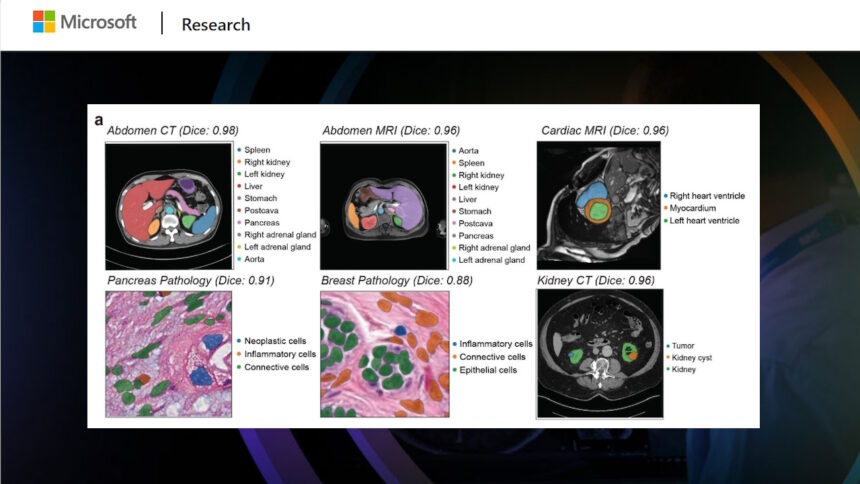Microsoft has launched a new AI tool, BiomedParse, that leverages OpenAI’s GPT-4 to analyze medical images. This AI promises to assist in diagnosing a variety of conditions by assessing CT scans, MRIs, X-rays, ultrasounds, and other medical imagery. With a simple text prompt, medical professionals can instruct BiomedParse to identify certain conditions or anomalies in images, like “pathological cells”; the AI will locate them.
What’s Happening & Why This Matters
BiomedParse has already demonstrated the ability to detect conditions such as tumors, melanoma, brain gliomas, cystoid macular edema, and even COVID-19 chest infections. Its key advantage over traditional methods is its efficiency: it requires much less input from the user compared to previous AI tools. Previously, older versions needed specific object bounding boxes to mark different areas of an image. This can be especially useful when images contain numerous objects.
While AI tools like BiomedParse are making waves in the medical field, the question of how useful they truly are remains open. Doctors already use their expertise to identify conditions like cancer. Some argue that AI’s role might be limited to providing additional assistance rather than replacing traditional methods. However, Microsoft compares BiomedParse to Google’s MedSAM AI. They note that both tools yield comparable results in medical image segmentation.
The integration of AI in healthcare is growing. Google has developed several health-focused AI tools over the years, including models that assist in detecting breast cancer and answering medical questions. Despite this, experts caution against over-reliance on AI in healthcare. Dr. Stephen Parodi from the Permanente Medical Group points out concerns about AI bias, privacy, and the need for clear regulatory guidelines in medical settings.
TF Summary: What’s Next
As AI integrates into healthcare, the use of tools like BiomedParse is expected to increase. However, the ethical and practical concerns about AI-based medicine will need to be addressed. Microsoft’s commitment to fairness and transparency in its AI models is important, but the company, like others in the industry, will need to navigate the complex challenges of AI ethics, privacy, and potential biases before it can truly revolutionize the medical field.
— Text-to-Speech (TTS) provided by gspeech


